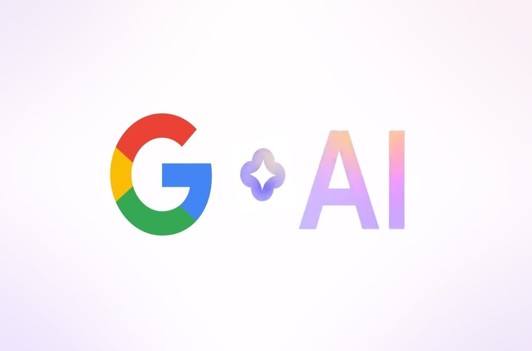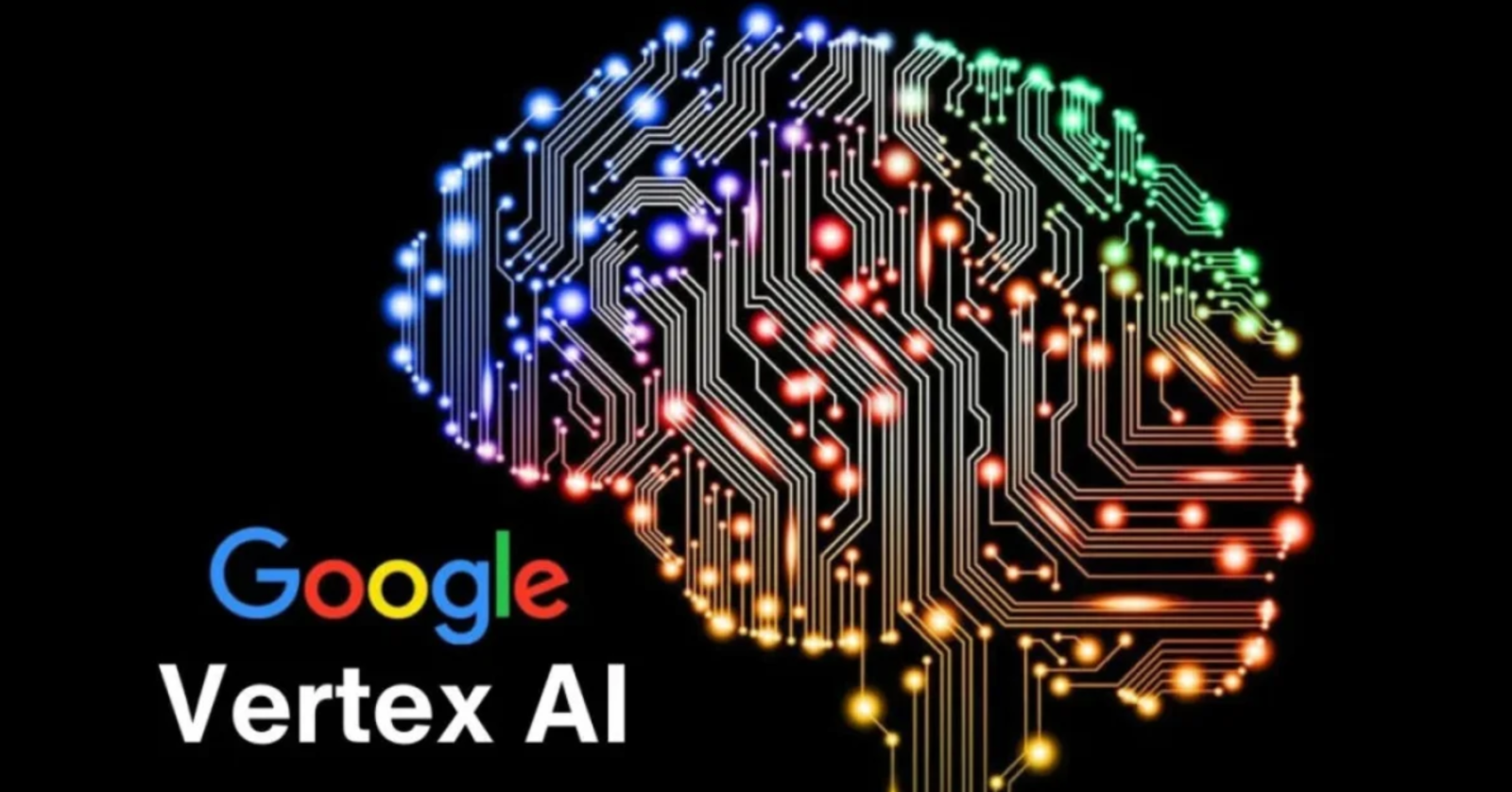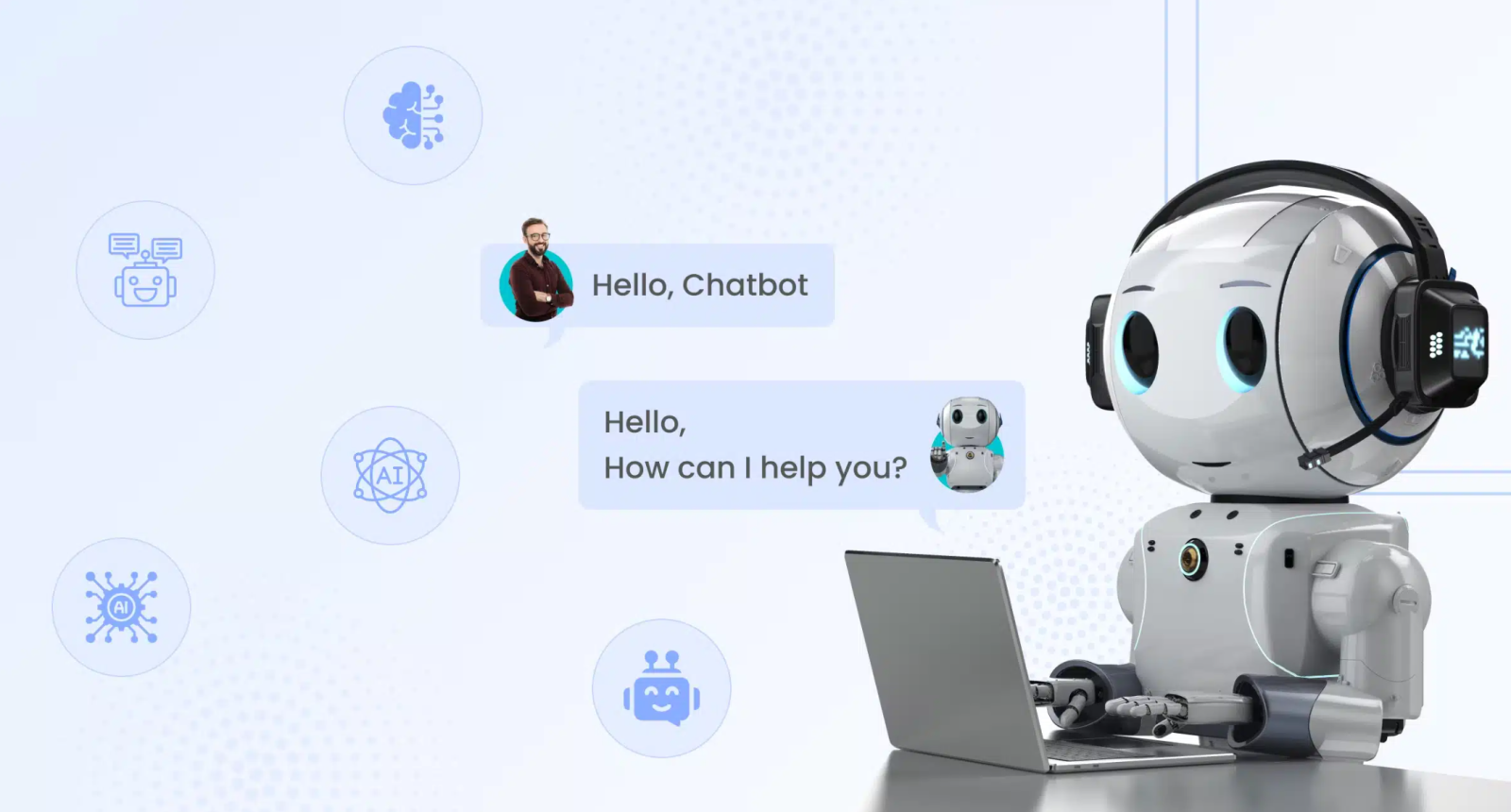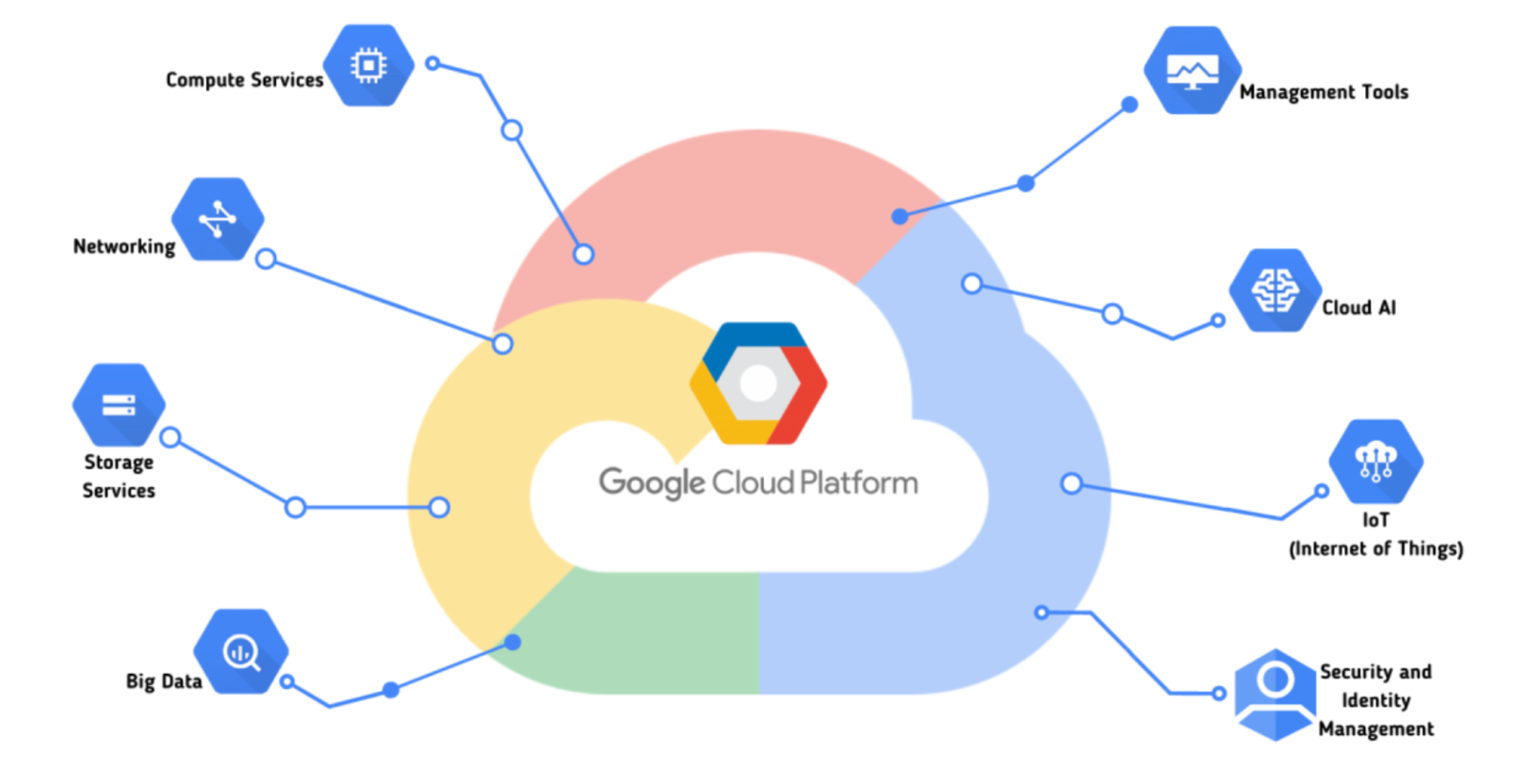Best Selling Products
Business in the AI Age: How Google AI Paves the Way for Sustainable Growth
Nội dung
- 1. Overview of Google AI in business
- 2. Google AI solutions for businesses
- 2.1. Optimizing operating processes
- 2.2. Improve customer experience
- 2.3. Product and service innovation
- 2.4. Enhanced security and risk management
- 3. Recommend Google AI applications for businesses
- 3.1. For small and medium enterprises (SMEs)
- 3.2. For large enterprises
- 3.3. For all businesses
Google is at the forefront of the artificial intelligence (AI) revolution, offering a range of cutting-edge platforms and technologies that enable businesses to harness the power of AI to achieve critical business goals.

In an increasingly competitive environment, applying technology to business operations and development is no longer an option but has become a necessity. Among the technologies that are changing the game, Google AI has emerged as one of the most powerful and comprehensive tools, helping businesses not only operate more efficiently but also create a leap forward in innovation and growth.
From automating repetitive processes, optimizing data to supporting intelligent decision making and developing highly personalized products and services, Google AI is gradually becoming a “strategic assistant” for many modern organizations. But specifically, how can Google AI support businesses? And what are the practical applications that are bringing clear value?
This article will explore the aspects of Google AI applications in business to help you better understand the potential of artificial intelligence in creating competitive and sustainable advantages in today's technology era.
1. Overview of Google AI in business
Google is at the forefront of the artificial intelligence (AI) revolution, offering a range of cutting-edge platforms and technologies that enable businesses to harness the power of AI to achieve critical business goals. Google's leading AI platforms and technologies include:
TensorFlow: A powerful open-source software library for building and deploying machine learning models. TensorFlow provides a comprehensive ecosystem of tools, libraries, and community resources that make it easy for developers to create cutting-edge AI applications.
Vertex AI: A unified platform that provides everything you need to build, deploy, and scale machine learning models. Vertex AI simplifies the ML workflow, from data preparation to model training and deployment, enabling businesses to quickly bring AI applications to production.
AutoML: A toolkit that enables developers with limited ML knowledge to easily train high-quality, custom models. AutoML democratizes AI, allowing businesses of all sizes to harness the power of ML without deep ML expertise.

Google AI is widely applied in many fields, including:
Natural Language Processing (NLP): Allows computers to understand, interpret, and generate human language. NLP applications include machine translation, sentiment analysis, chatbots, and virtual assistants.
Machine vision: Allows computers to “see” and understand visual information from images and videos. Machine vision applications include image recognition, object detection, and motion tracking.
Machine Learning (ML): Allows computers to learn from data without being explicitly programmed. ML applications include prediction, classification, and recommendation.
Compared with other AI solutions, Google AI has the following strengths and competitive advantages:
Powerful Infrastructure: Google owns a vast global cloud infrastructure, providing the computing power and scalability needed to train and deploy large AI models.
Rich Data: Google has access to a large amount of diverse data, which can be used to train accurate and powerful AI models.
Deep expertise: Google has a team of world-class AI researchers and engineers who are constantly developing the latest AI technologies.
Comprehensive ecosystem: Google provides a comprehensive ecosystem of AI tools, platforms, and services, making it easy for businesses to build and deploy AI applications.
2. Google AI solutions for businesses
Google AI offers a range of powerful solutions to help businesses optimize operations, enhance customer experiences, innovate products and services, and enhance security and risk management.

2.1. Optimizing operating processes
Repetitive Task Automation (RPA) with AI: AI can be used to automate repetitive, time-consuming tasks such as data entry, invoice processing, and report generation. This frees up employees to focus on more strategic work, while reducing errors and improving efficiency.
Smart supply chain management with AI: AI can help businesses manage their supply chains more efficiently by forecasting demand, optimizing inventory, and improving logistics. This can help reduce costs, improve delivery times, and increase customer satisfaction.
Forecasting and optimizing demand with AI: AI can be used to forecast future demand more accurately, allowing businesses to optimize production, manage inventory, and adjust pricing. This can help increase revenue, reduce costs, and improve profits.
2.2. Improve customer experience
Personalize customer interactions with AI: AI can help businesses personalize their interactions with customers by providing targeted product recommendations, personalized marketing campaigns, and tailored customer service. This can help increase customer satisfaction, loyalty, and revenue.
24/7 Customer Support Chatbots: AI chatbots can provide 24/7 customer support, answering frequently asked questions, resolving issues, and guiding customers through tasks. This can help reduce customer service costs and improve customer satisfaction.

Customer sentiment analysis to improve service: AI can be used to analyze customer sentiment from different sources, such as social media conversations, customer reviews, and call center calls. This can help businesses better understand customer needs and wants, and improve their products and services.
2.3. Product and service innovation
New product research and development with AI: AI can be used to accelerate the process of new product research and development by automating experiments, analyzing data, and creating new designs. This can help businesses bring new products to market faster and more efficiently.
Generative AI for marketing and creation: AI can be used to create engaging marketing content, such as text, images, and videos. This can save businesses time and money, while improving the effectiveness of their marketing campaigns.
Analyzing big data to find new business opportunities: AI can be used to analyze large amounts of data to identify trends, patterns, and new business opportunities. This can help businesses make better-informed decisions and create new products and services that meet market needs.
2.4. Enhanced security and risk management
Detect and prevent cybersecurity threats with AI: AI can be used to detect and prevent cybersecurity threats, such as malware, phishing attacks, and network intrusions. This can help businesses protect their data and systems from cyberattacks.
Intelligent user authentication and authorization: AI can be used to authenticate and authorize users more securely and efficiently. For example, AI can be used for biometric authentication or to analyze user behavior to detect suspicious activities.
Predict and mitigate financial risks with AI : AI can be used to predict and mitigate financial risks, such as fraud, default, and market volatility. This can help businesses make better financial decisions and protect their assets.
3. Recommend Google AI applications for businesses
Implementing Google AI can bring huge benefits to businesses of all sizes. However, it is important to have a clear strategy that is tailored to each business's specific needs and resources.

3.1. For small and medium enterprises (SMEs)
Use Google Workspace's built-in AI tools (Gmail, Docs, Sheets) to increase productivity: Google Workspace offers a range of built-in AI tools that can help small and medium-sized businesses automate tasks, improve communication and collaboration, and increase productivity. For example, businesses can use Smart Compose in Gmail to write emails faster, use smart grammar and spelling in Docs to improve writing, and use suggestions and autofill in Sheets to analyze data more effectively.
Implement simple AI solutions like chatbots for customer support: Chatbots are an effective way for small and medium-sized businesses to provide 24/7 customer support without hiring additional staff. Chatbots can answer frequently asked questions, solve problems, and guide customers through simple tasks.
Use Google Analytics to analyze data and make business decisions: Google Analytics is a powerful tool that allows small and medium-sized businesses to track website traffic, customer behavior, and the effectiveness of marketing campaigns. By analyzing this data, businesses can better understand their customers and make better business decisions.
3.2. For large enterprises
Build custom AI applications with Vertex AI to solve complex problems: Vertex AI provides a comprehensive platform to build, deploy, and manage custom AI applications. Large enterprises can use Vertex AI to solve complex problems, such as demand forecasting, supply chain optimization, and customer experience personalization.
Use Google Cloud Platform (GCP) to store and process big data for AI projects: GCP offers a range of scalable and secure data storage and processing services that are well-suited for AI projects. Large enterprises can use GCP to store large amounts of training data and run complex AI models.

Invest in training and developing a team of AI experts: To fully leverage the power of AI, large enterprises need to invest in training and developing a team of AI experts. This can include hiring data scientists and ML engineers, as well as providing training to current employees.
3.3. For all businesses
Prioritize AI projects that deliver clear and measurable business value: When getting started with AI, it is important to focus on projects that deliver clear and measurable business value. This will help ensure that AI efforts are driving meaningful business outcomes.
Ensuring data security and ethics when deploying AI solutions: Data is the fuel that powers AI models, so it is important to ensure that it is secure and used ethically. Businesses should take steps to protect sensitive data and comply with relevant regulations.
Stay up to date and experiment with Google’s latest AI technologies: The AI field is evolving rapidly, so it’s important for businesses to stay up to date and experiment with Google’s latest AI technologies. This will help them stay ahead of the curve and take full advantage of the power of AI.
However, AI adoption is not a quick fix. It requires a clear strategy, appropriate investment, and thorough technical and organizational preparation. Businesses should start with small, highly feasible projects and gradually expand their AI application scope as they gain experience and see the benefits of the technology. With the right approach, Google AI can help businesses of all sizes transform their operations and achieve greater success in the digital age.












































